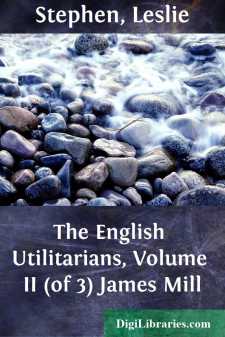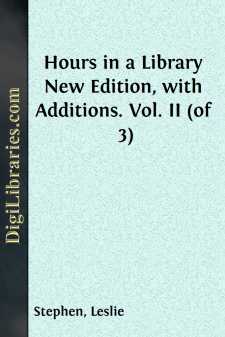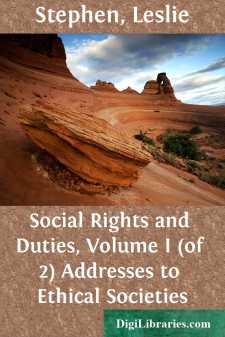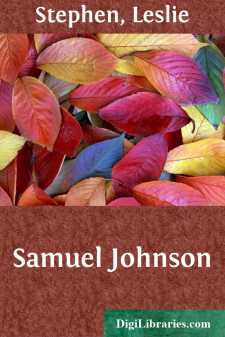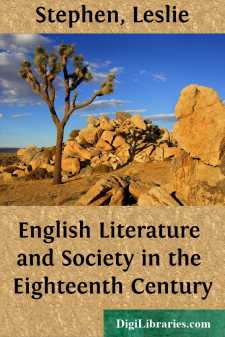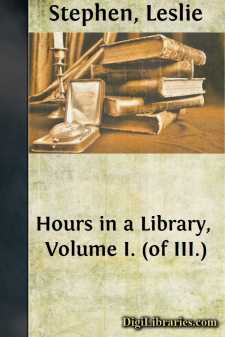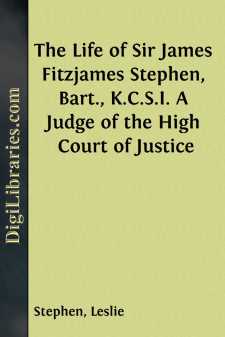Categories
- Antiques & Collectibles 13
- Architecture 36
- Art 48
- Bibles 22
- Biography & Autobiography 813
- Body, Mind & Spirit 142
- Business & Economics 28
- Children's Books 17
- Children's Fiction 14
- Computers 4
- Cooking 94
- Crafts & Hobbies 4
- Drama 346
- Education 46
- Family & Relationships 57
- Fiction 11829
- Games 19
- Gardening 17
- Health & Fitness 34
- History 1377
- House & Home 1
- Humor 147
- Juvenile Fiction 1873
- Juvenile Nonfiction 202
- Language Arts & Disciplines 88
- Law 16
- Literary Collections 686
- Literary Criticism 179
- Mathematics 13
- Medical 41
- Music 40
- Nature 179
- Non-Classifiable 1768
- Performing Arts 7
- Periodicals 1453
- Philosophy 64
- Photography 2
- Poetry 896
- Political Science 203
- Psychology 42
- Reference 154
- Religion 513
- Science 126
- Self-Help 84
- Social Science 81
- Sports & Recreation 34
- Study Aids 3
- Technology & Engineering 59
- Transportation 23
- Travel 463
- True Crime 29
The English Utilitarians, Volume II (of 3) James Mill
by: Leslie Stephen
Description:
Excerpt
CHAPTER I
JAMES MILL
I. EARLY LIFE
Bentham's mantle fell upon James Mill. Mill expounded in the tersest form the doctrines which in Bentham's hands spread into endless ramifications and lost themselves in minute details. Mill became the leader of Bentham's bodyguard; or, rather, the mediator between the prophet in his 'hermitage' and the missionaries who were actively engaged on the hustings and in committee-rooms. The special characteristics of English Utilitarianism in the period of its greatest activity were thus more affected by Mill than by any other leader of opinion.
James Mill was one of the countless Scots who, having been trained at home in strict frugality and stern Puritanic principles, have fought their way to success in England. He was born 6th April 1773 in the parish of Logie Pert, Forfarshire. His father, also named James Mill, was a village shoemaker, employing two or three journeymen when at the height of his prosperity. His mother, Isabel Fenton, daughter of a farmer, had been a servant in Edinburgh. Her family had some claims to superior gentility; she was fastidious, delicate in frame, and accused of pride by her neighbours. She resolved to bring up James, her eldest son, to be a gentleman, which practically meant to be a minister. He probably showed early promise of intellectual superiority. He received the usual training at the parish school, and was then sent to the Montrose Academy, where he was the school-fellow and friend of a younger lad, Joseph Hume (1777-1855), afterwards his political ally. He boarded with a Montrose shopkeeper for 2s. 6d. a week, and remained at the Academy till he was seventeen. He was never put to work in his father's shop, and devoted himself entirely to study. The usual age for beginning to attend a Scottish university was thirteen or fourteen; and it would have been the normal course for a lad in Mill's position to be sent at that age to Aberdeen. Mill's education was prolonged by a connection which was of great service to him. Sir John Stuart (previously Belches), of Fettercairn House, in Mill's neighbourhood, had married Lady Jane Leslie, and was by her father of an only child, Wilhelmina. Lady Jane was given to charity, and had set up a fund to educate promising lads for the ministry. Mill was probably recommended to her by the parish minister, as likely to do credit to her patronage. He also acted as tutor to Wilhelmina, who afterwards became the object of Scott's early passion. Mill spent much time at Fettercairn House, and appears to have won the warm regards both of the Stuarts and of their daughter, who spoke of him affectionately 'with almost her last breath.' The Stuarts passed their winters at Edinburgh, whither Mill accompanied them. He entered the university in 1790, and seems to have applied himself chiefly to Greek and to philosophy. He became so good a Greek scholar that long afterwards (1818) he had some thoughts of standing for the Greek chair at Glasgow. He was always a keen student of Plato. He read the ordinary Scottish authorities, and attended the lectures of Dugald Stewart....


